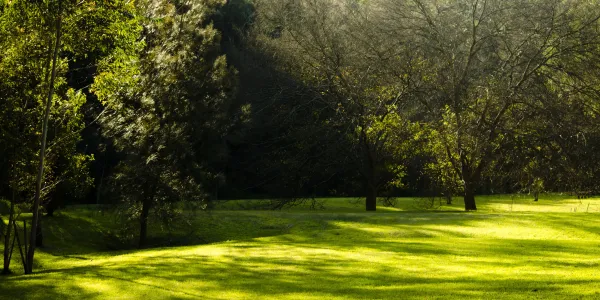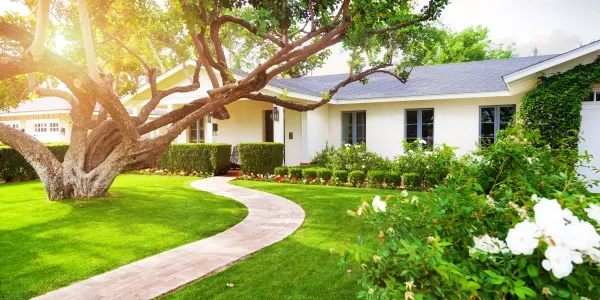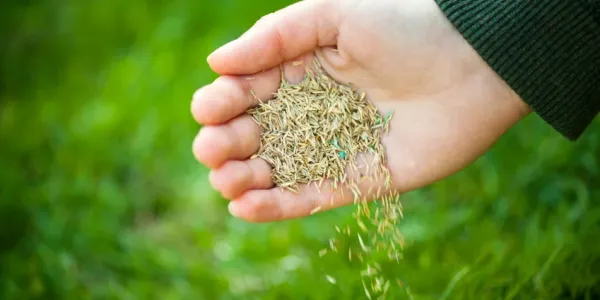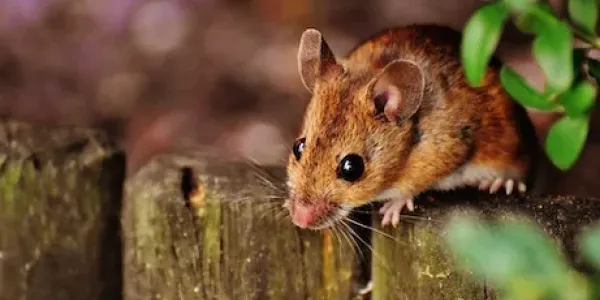Your Complete Summer Lawn Care Guide for Tennessee (2025)

Tennessee summers bring high heat, humidity, and occasional drought conditions, making it challenging to maintain a lush, green lawn. Without proper care, your grass may suffer from stress, thinning, and increased susceptibility to weeds and pests. Implementing effective summer lawn care practices ensures your lawn stays healthy and resilient throughout the season.
1. Mowing Practices
Proper mowing techniques play a vital role in maintaining a strong and vibrant lawn during summer.
Best Mowing Heights
Different TN grass types require different mowing heights to stay healthy:
- Bermudagrass: 1-2 inches
- Zoysia: 1-2 inches
- Fescue: 3-4 inches
Keeping Mower Blades Sharp
- Sharp mower blades create clean cuts, reducing stress on the grass and minimizing disease risk.
- Dull blades tear the grass, leading to frayed brown tips and a greater chance of fungal infections.
Mowing Frequency & Techniques
- Mow frequently enough to avoid cutting more than one-third of the blade length at a time.
- Avoid mowing when the grass is wet, as this can cause uneven cuts and promote disease spread.
- Consider mulching grass clippings instead of bagging them to return nutrients to the soil.
2. Watering Strategies
Efficient watering ensures your lawn remains hydrated without wasting water.
Deep, Infrequent Watering
- Aim for 1-1.5 inches of water per week, applied in 2-3 sessions instead of daily watering.
- Deep watering encourages deep root growth, which helps the lawn withstand heat and drought.
Best Time to Water
- Early morning (4-10 AM) is the best time to water to minimize evaporation and reduce the risk of disease.
- Avoid watering in the evening, as prolonged moisture on the grass can lead to fungal growth.
Signs of Overwatering vs. Underwatering
- Overwatering Signs: Mushy soil, yellowing grass, excessive thatch buildup, and fungal growth.
- Underwatering Signs: Wilting, brown or crispy patches, and footprints remaining visible after walking on the lawn.
Learn the 6 best lawn watering tips for TN yards.
3. Fertilization
Providing the right nutrients keeps your lawn healthy despite summer stressors.
Key Nutrients for Summer Lawn Health
- Nitrogen (N): Encourages leafy green growth but should be applied carefully in hot weather.
- Phosphorus (P): Supports root development, especially important for newly seeded areas.
- Potassium (K): Enhances drought and disease resistance, helping grass thrive under stress.
Soil Testing for Precision Fertilization
- Conduct a soil test to determine nutrient deficiencies and pH balance before applying fertilizers.
- The ideal soil pH for most Tennessee lawns is 6.0-7.0.
Choosing the Right Fertilizer
- Slow-release fertilizers provide a steady nutrient supply without burning the grass.
- Organic options like compost or liquid seaweed can improve soil health over time.
- Avoid excessive nitrogen in mid-to-late summer, as it can make grass more vulnerable to drought stress.
Check out our TN soil testing and fertilizer guide.
4. Weed and Pest Control
Controlling weeds and pests prevents them from overtaking your lawn during summer.
Common Summer Weeds & Control Methods
- Crabgrass: Best controlled with pre-emergent herbicides in early spring and post-emergents in summer.
- Nutsedge: Requires selective herbicides; hand-pulling often leads to regrowth.
- Spurge: Thrives in thin lawns; maintain thick, healthy grass to prevent infestations.
Learn more about the 10 most common TN weeds.
Summer Lawn Pests & Solutions
- Grubs: Feed on grass roots and attract moles. Treat with beneficial nematodes or insecticides if infestations occur.
- Chinch Bugs: Cause dry, yellow patches; use insecticidal soap or chemical treatments as needed.
- Armyworms: Can devastate lawns quickly; apply Bacillus thuringiensis (Bt) or chemical treatments if needed.
Natural vs. Chemical Control
- Organic methods: Hand-pulling weeds, using corn gluten meal as a pre-emergent, and introducing beneficial insects.
- Chemical control: Use selective herbicides and pesticides carefully to target problems without harming beneficial organisms.
5. Aeration and Soil Health
Aeration helps alleviate soil compaction, but summer may not be the best time to perform this task.
Best Time for Aeration
- Cool-season grasses (Fescue): Aerate in the fall when growth is strongest.
- Warm-season grasses (Bermudagrass, Zoysia): Aerate in late spring or early summer before peak growth.
Learn more about the benefits of aeration and overseeding.
Maintaining Soil Health
- Organic Matter: Applying compost improves microbial activity and nutrient availability.
- Clay Soil Management: Use gypsum to break up compacted clay soils common in Tennessee.
- Mulching: Grass clippings and leaves improve soil structure and moisture retention.
- Proper pH Balance: A pH between 6.0-7.0 ensures optimal nutrient uptake.
How 4-Evergreen Lawn Care Can Keep Your Lawn Healthy All Summer
Taking care of your lawn during Tennessee’s hot and humid summers can be challenging, but you don’t have to do it alone. 4-Evergreen Lawn Care offers expert lawn care services designed to keep your grass green, healthy, and thriving all season long.
Professional Lawn Care Tailored to Your Needs
Our team understands the unique challenges that Tennessee lawns face and provides customized solutions, including:
- Fertilization Programs: We apply the right nutrients at the right time to promote strong root growth and resilience against heat and drought.
- Weed Control: Our targeted treatments prevent and eliminate invasive weeds that compete with your grass for nutrients.
- Pest Management: We protect your lawn from grubs, armyworms, and other damaging pests using safe and effective treatments.
- Aeration and Overseeding: We improve soil health and encourage thick, lush grass by reducing compaction and introducing fresh growth.
Let the Experts Handle Your Lawn
With 4-Evergreen Lawn Care, you can enjoy a beautiful lawn without the hassle. Our comprehensive lawn care programs ensure that your grass stays green, healthy, and well-maintained throughout the summer and beyond.
Contact us today to schedule a consultation and give your lawn the professional care it deserves!
Sources:







